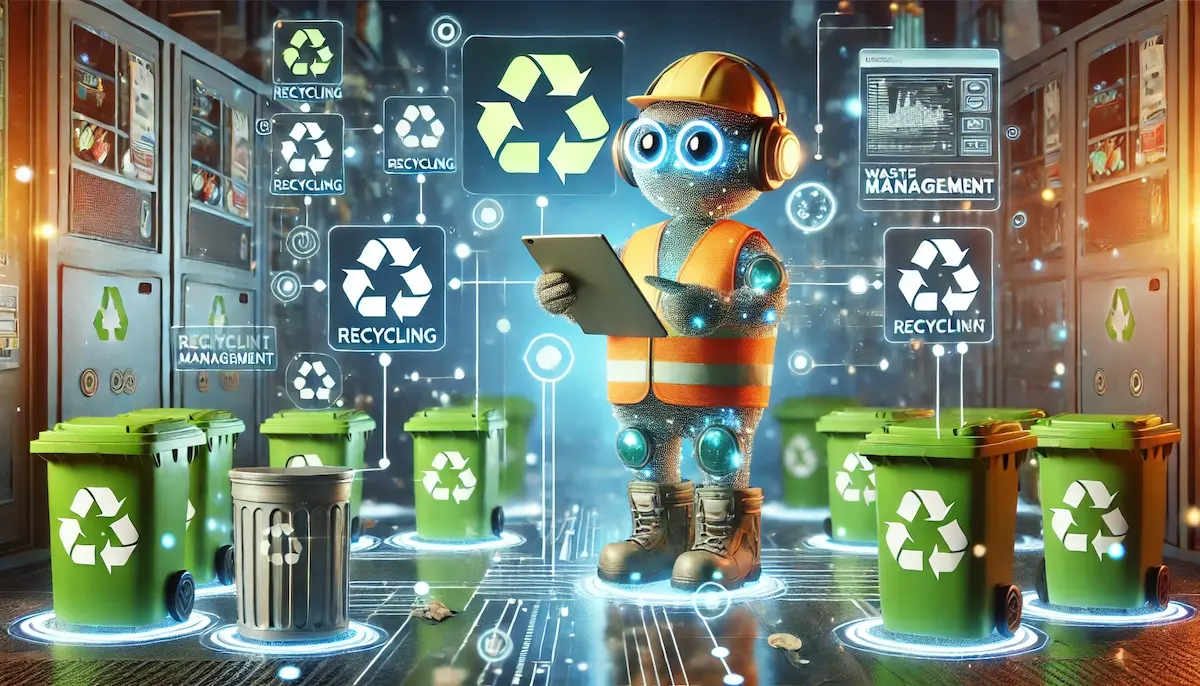Waste management involves the collection, transportation, processing, recycling, and disposal of waste materials in a way that minimizes their impact on the environment and public health. Effective waste management strategies are essential for sustainable living, reducing pollution, and conserving natural resources.
What is Waste Management?
Waste management encompasses all the activities and actions required to manage waste from its inception to its final disposal. This includes the monitoring and regulation of waste collection, transportation, treatment, and disposal. It also involves waste reduction, recycling, and composting efforts to minimize the volume of waste sent to landfills and incinerators.
Key Components of Waste Management
Waste Collection
Waste collection is the first step in the waste management process. It involves gathering waste materials from households, businesses, and industrial sites. Efficient waste collection systems ensure that waste is collected regularly and transported to treatment or disposal facilities in a timely manner.
Waste Transportation
Once collected, waste must be transported to facilities where it can be treated, recycled, or disposed of. Waste transportation systems include garbage trucks, transfer stations, and shipping containers for hazardous or large-scale waste. Proper transportation ensures that waste is handled safely and reduces the risk of environmental contamination.
Waste Treatment
Waste treatment involves processing waste materials to reduce their volume, neutralize hazardous substances, or prepare them for recycling. Treatment methods include:
- Mechanical Treatment: Sorting, shredding, and compacting waste to reduce its volume.
- Biological Treatment: Composting organic waste and using anaerobic digestion to produce biogas.
- Chemical Treatment: Neutralizing hazardous substances and converting waste into less harmful materials.
- Thermal Treatment: Incinerating waste to generate energy or reduce its volume.
Recycling
Recycling is the process of converting waste materials into new products to prevent waste and reduce the consumption of raw materials. Commonly recycled materials include paper, glass, metals, and plastics. Recycling helps conserve natural resources, save energy, and reduce greenhouse gas emissions.
Composting
Composting is a method of recycling organic waste, such as food scraps and yard waste, into nutrient-rich compost that can be used to enrich soil. This process involves the natural decomposition of organic materials by microorganisms, resulting in a valuable soil amendment that improves soil health and fertility.
Waste Disposal
Disposal is the final step in the waste management process. It involves the safe and environmentally sound disposal of waste materials that cannot be recycled or treated. Common disposal methods include:
- Landfills: Engineered sites where waste is buried and isolated from the environment. Modern landfills are designed to minimize leachate and methane emissions.
- Incineration: Burning waste at high temperatures to reduce its volume and generate energy. Incineration can be used to treat hazardous waste and reduce the need for landfill space.
Benefits of Effective Waste Management
Environmental Protection
Effective waste management helps protect the environment by reducing pollution, conserving natural resources, and preventing habitat destruction. Proper treatment and disposal of waste minimize the release of harmful substances into the air, water, and soil.
Resource Conservation
Recycling and composting reduce the need for raw materials and lower the demand for resource extraction. By recovering valuable materials from waste, we can conserve natural resources and decrease the environmental impact of mining, logging, and other resource-intensive activities.
Energy Savings
Recycling materials like aluminum, paper, and plastics require less energy than producing new products from raw materials. Waste-to-energy technologies, such as incineration and anaerobic digestion, also generate energy from waste, contributing to energy savings and reducing reliance on fossil fuels.
Economic Benefits
Waste management creates jobs in collection, transportation, recycling, and treatment sectors. Recycling and composting industries also contribute to the economy by producing valuable materials and reducing disposal costs. Efficient waste management systems can save municipalities money and provide financial incentives for businesses to adopt sustainable practices.
Public Health Improvement
Proper waste management reduces the risk of disease transmission, pest infestations, and exposure to hazardous substances. Safe and sanitary disposal of waste protects public health and enhances the quality of life in communities.
Challenges and Future Outlook
Despite its benefits, waste management faces challenges such as increasing waste volumes, limited recycling infrastructure, and the management of hazardous waste. Public awareness and participation are also crucial for the success of waste management programs.
The future of waste management is promising, with advancements in technology and growing awareness of environmental issues driving innovation. New approaches, such as circular economy models, aim to eliminate waste by designing products and systems that promote reuse, recycling, and resource efficiency. As technology continues to evolve, waste management strategies will become more effective, sustainable, and integrated into everyday life.
Blockfine thanks you for reading and hopes you found this article helpful.
